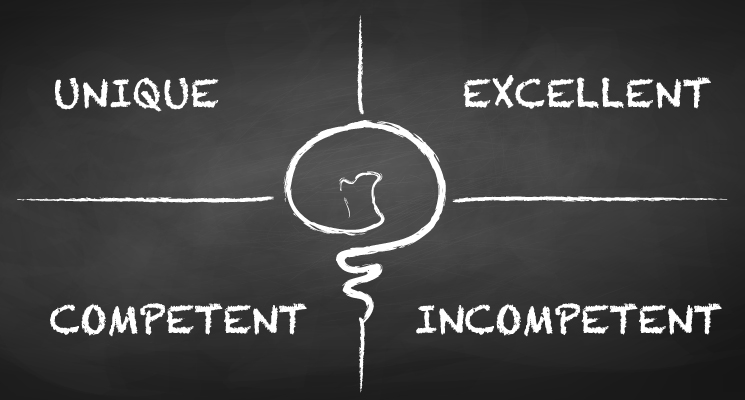Tell me if this sounds familiar: you had your great idea for a business. You put it into action and it starts to take off. You’re riding that entrepreneurial high — and then, you start drowning in to-dos. You have to manage the books. File taxes. Update social media. Recruit new employees. Respond to emails. The list goes on and on and on. Suddenly, you’re working long days and your business doesn’t seem like your own anymore.
This is called working in your business, and it defeats the purpose of being an entrepreneur! Instead, you want to have time and energy to work on your business. To do that, you need to embrace your unique ability — and delegate anything that doesn’t require that.
The Workaholic Entrepreneur
As entrepreneurs, we feel ownership of our businesses. That’s a good thing! But we’re also doers, and we want to be sure it’s done right. Especially when we’re first starting out, we tend to take it all on. This leads to that particular kind of workaholism that only entrepreneurs have: you’re so consumed by your business that you’re constantly checking email, running admin, etc.
What happens, then, is that you devote so much time and energy to these additional tasks that you don’t have any left for your unique ability! Your core competencies are what got your business rolling. But it quickly becomes unsustainable if you end up drowning in mundane tasks.
Remember the Pareto Principle: 80% of the results come from 20% of the efforts. When you first start your business, your unique ability composes most of your efforts. In time, that shifts until you’re spending 80% of your time doing the tasks that don’t mesh with your competencies. Well, how does that leave room for that vital 20%?
Identifying Your Unique Ability
As you get “into the weeds” of your business, it’s easy to lose sight of the unique ability that got you into business in the first place. To recover your core competencies and align your to-do list with them, start by making a chart with four columns:
1. Things I excel at and love doing
2. Things I’m good at but don’t enjoy
3. Things I’m okay at
4. Things I’m not good at but have to do
Document your activities over a week or so, and place each one in its appropriate section. At the end of the week, assess your results. How many of your tasks were in sections 2, 3, or 4? If you’re like most people, you’re spending anywhere from 30 to 70 per cent of your time on those sections — and less than 30 per cent on section 1, where the real results come from!

Wrapping Up
To fully leverage your unique ability, start shifting tasks out of sections 2, 3, and 4:
For section 2, assess whether you gain value from doing those tasks. You’ll likely be better off delegating them and simply coaching someone else on the task.
For section 3, ask yourself if you derive value from those tasks. Do you enjoy them and want to improve your skills? Or would they be better off with someone else?
And of course, for section 4, you should absolutely outsource those items.
Once more of your time is spent on section 1, you’ll enjoy that coveted entrepreneurship–life balance. Plus, your business will grow and thrive because you’re making room for your unique ability to drive its growth. Remember the power of the word “no” — you should only say “yes” to the tasks you truly love and excel at! That’s the key to working ON your business rather than IN it.
This blog was based on the Simplifying Entrepreneurship podcast, episode 7, in which I interviewed business coach Michael Reddy about the Strategic Coach concept, “Unique Ability”. You can watch the uncut interview below.




0 Comments